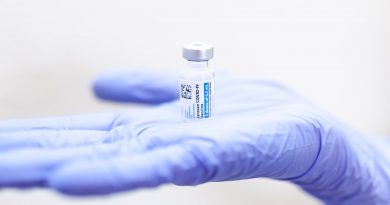AstraZeneca to supply up to 400 million doses of Oxford’s vaccine free
AstraZeneca has come to an agreement with the European Inclusive Vaccines Alliance (IVA), initiated by Germany, France, Italy and the Netherlands, to provide up to 400 million doses of Oxford’s COVID-19 vaccine, with deliveries commencing at the end of 2020.
Boosting vaccine supply
The aim of the IVA contract is to boost the vaccine supply and to make it accessible to other European countries wishing to participate in the initiative. IVA is dedicated to providing equal access to all member countries across Europe.
AstraZeneca keeps building a number of supply chains in parallel throughout the world, including Europe. The pharmaceutical organisation aims to further develop its production capability and is open to partnerships with other organisations in order to satisfy its pledge to sustain the unprofitable distribution of the vaccine during the pandemic.
Pascal Soriot, Chief Executive Officer, said:
“This agreement will ensure that hundreds of millions of Europeans have access to Oxford University’s vaccine following approval. With our European supply chain due to begin production soon, we hope to make the vaccine available widely and rapidly. I would like to thank the governments of Germany, France, Italy and the Netherlands for their commitment and swift response.”
The British-Swedish multinational pharma and biotech organisation has previously accomplished similar agreements with the United Kingdom, the United States, the Coalition for Epidemic Preparedness Innovations (CEPI) and the Gavi Vaccine Alliance for 700 million doses, and has granted a licence to the Serum Institute of India to deliver an additional one billion doses, primarily to low-and middle-income countries. Total production potential is currently at two billion doses.
Back in May, Oxford University confirmed the beginning of the UK Phase II / III AZD1222 trial in approximately 10,000 adult participants. Other late-stage trials are expected to begin in many countries. AstraZeneca recognises that the vaccine may not work but is devoted to ramp up the clinical programme and to accelerate the production at risk.
The holistic Pandemic Response of the Company also includes the enhanced concentration of AstraZeneca’s global research efforts to find novel coronavirus-neutralizing antibodies to prevent and treat the progression of COVID-19 disease, with the purpose of starting clinical trials in the next three to five months.
In addition, the company quickly switched to testing new and existing anti-infection drugs, including CALAVI trials for Calquence (acalabrutinib) and DARE-19 in Farxiga (dapagliflozin) in COVID-19 patients.
Financial Considerations
The project is not expected to make any significant impact on the Company’s financial guidelines for 2020. The cost of vaccine manufacturing is intended to be sponsored by the government.
Oxford’s AZD1222 nCoV-19 vaccine
The Jenner Institute of Oxford University, in partnership with the Oxford Vaccine Team, invented the CHADOx1 nCoV-19 vaccine, currently introduced as AZD1222. It utilises a replication-deficient chimpanzee viral vector based on an attenuated variant of the common cold (adenovirus) virus that triggers infection in chimpanzees and carries the SARS-CoV-2 spike protein genetic material. After vaccination, a surface spike protein is produced, which generates the immune system response to neutralise COVID-19 if it later attacks the body.
Recombinant adenovirus vector
The recombinant adenovirus vector (ChAdOx1) was selected to induce a powerful single-dose immune response without replicating and therefore unable to trigger an ongoing infection in the vaccinated subject. Vaccines made from ChAdOx1 have been given to more than 320 volunteers to date and have demonstrated to be well tolerated, although transition side effects such as temperature, flu-like symptoms, headache or sore arm have been observed.
About AstraZeneca
AstraZeneca (LSE / STO / NYSE: AZN) is a multinational, science-led biopharmaceutical corporation dedicated on the research, development and manufacturing of prescription drugs, mainly for the treatment of diseases in few therapeutic fields – oncology, cardiovascular, renal & metabolism, and respiratory & immunology.
Headquartered in Cambridge, UK, AstraZeneca operates in more than 100 countries and its groundbreaking drugs are used by millions of patients worldwide.
For more information please visit astrazeneca.com




